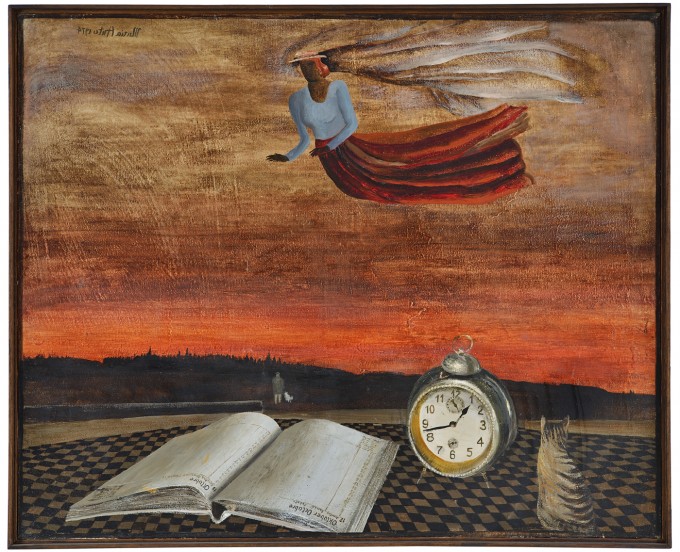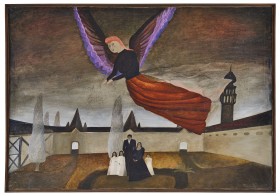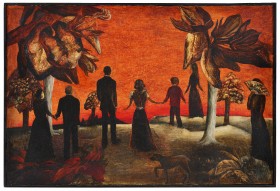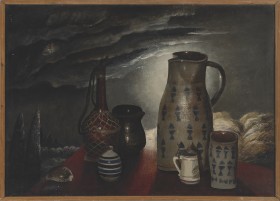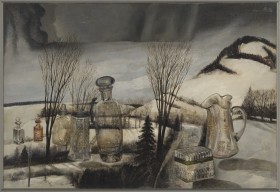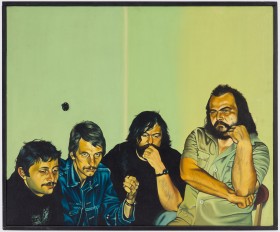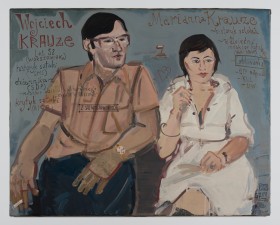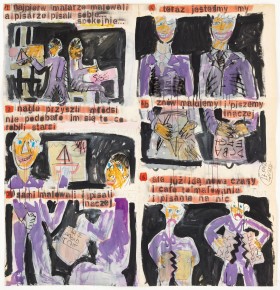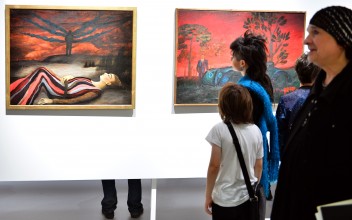Białowieża One Year later
- type of object: painting
- date: 1974
- material/technique: oil on canvas
- dimensions: 81 x 100 cm
- inventory No.: M-3
In the foreground of the painting Białowieża One Year Later, a calendar and an alarm clock catch the eye. They are depicted in a much larger scale than the cat sitting on the right, its back turned. These motifs have been laid out in a chequerboard pattern; in the background is a sunset landscape, with a figure with a white dog visible in the distance. Hovering in the sky is a figure resembling an angel from Anto’s other paintings, but without wings; spreading out from its head are ribbons or a veil, floating in the air. The colours of the fading evening light may indicate the autumn season, which is confirmed by the calendar, open to October pages. It seems that the puzzling scene may express a nostalgic reflection related to the inevitable passing of time.
The representational nature of Anto’s works is punctuated with surrealism. The motifs on the canvas tell a story, but it is rarely possible to decipher it. The viewer is confronted with a mystery that is a knot of references to subjects drawn from the artist’s life, memories, and imagination. Art critic Andrzej Osęka wrote that this is a method of leaving things ‘as much uncovered as hidden, to speak of a work of personal experiences. We know that in 1968, Anto came to Białowieża for the first time, for the International Painting Plein-Air, in which she later participated many times. Plein-airs were a passion of hers — it was the only time in the artist’s life devoted only to painting. ‘I paint like a madwoman’, she admitted, ‘one canvas after another’. Despite these biographical indications, the ordinary objects — alarm clock, calendar, cat — are impossible to unequivocally decipher. American art historian Whitney Chadwick attempted to characterise the exceptionality of the language of women’s surrealism and drew attention to the fact that unlike the hallucinations and erotic violence present in men’s paintings, women created worlds imbued with storybook qualities and fantasy. The researcher did not study the works of Anto, but it seems that the Polish painter could be included in the ranks of the artists she wrote about.
Ewa Skolimowska, translated by Paulina Bożek
